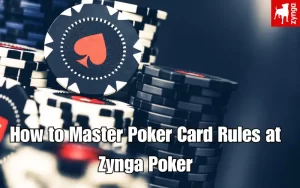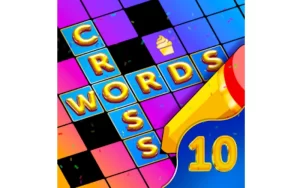Poker is one of the most iconic and widely played card games globally, appealing to casual players and serious gamblers. With its blend of skill, strategy, and luck, poker offers a thrilling experience. Whether playing online, in a casino, or at home with friends, the variety of poker games keeps the game fresh and exciting. This article will explore the most popular poker variants, how they work, and strategies to improve your gameplay.
What is Poker?
Poker games is a family of card games where players wager over which hand is best according to the game’s specific rules. Poker involves strategy, psychology, and probability, unlike other casino games that rely heavily on luck. The objective is to win chips or money by forming the best hand or convincing your opponents to fold their hands.
Basic Poker Games Terminology
Before diving into different poker games, it’s essential to understand some basic terms that apply across all poker variants:
- Blinds: Forced bets posted by players before the cards are dealt (in games like Texas Hold ’em).
- Call: Matching the current bet.
- Fold: Give up your hand, and do not continue the round.
- Raise: Increasing the size of the current bet.
- Pot: The total money or chips players bet during a hand.
Popular Poker Games Variants
Poker has many variations, each with unique rules and strategies. Here are some of the most popular poker games played globally:
Texas Hold ’em
Texas Hold’em is the most popular live and online poker game. The game is easy to learn but difficult to master, great for beginners and pros.
How It Works:
- Each player is dealt two private cards (hole cards).
- Five community cards are dealt face-up in the middle of the table.
- Players use these community cards and their hole cards to form the best five-card hand.
- The goal is to make the best hand or to bluff your opponents into folding.

Omaha Poker
Omaha Poker games is another popular variant, especially in Europe. While it shares some similarities with Texas Hold ’em, the main differences are the number of hole cards and the strategy involved.
How It Works:
- Each player is dealt four hole cards instead of two.
- Five community cards are dealt on the board.
- The best hand requires two hole cards and three community cards.
- Omaha requires more strategic thinking due to the increased number of possible hand combinations.
Seven Card Stud
Before Texas Hold ’em took over the poker scene, Seven Card Stud was one of the most popular variants. Unlike Hold ’em and Omaha, Seven Card Stud doesn’t involve community cards, which changes the game’s dynamics.
How It Works:
- Seven cards are dealt to each player—three face-down and four face-up.
- Players must use these seven cards to form the best five-card hand.
- Unlike other variants, there are no blinds in Seven Card Stud; instead, there’s an ante (a small forced bet by each player).
Five Card Draw
Five-card draw is often considered the most straightforward form of poker. Beginners can easily learn this home gaming type.
How It Works:
- Each player is dealt five private cards.
- Players can exchange (or “draw”) some or all of their cards to improve their hand.
- After the draw, there’s a final betting round, and the best hand wins.
Razz Poker
Razz is a lesser-known poker variant but popular among seasoned players. The objective in Razz is to make the lowest possible hand, which adds an exciting twist to traditional poker gameplay.
How It Works:
- Players are dealt seven cards, but only the lowest five-card combination counts.
- Straights and flushes don’t count against you in Razz, meaning a hand like A-2-3-4-5 (a “wheel”) is the best possible.
Poker Games Strategies to Improve Your Game
Whether playing Texas Hold ’em or Five Card Draw, strategic thinking is essential to becoming a successful poker player. Here are some basic strategies to improve your poker skills:
Learn Hand Rankings
Understanding poker hand rankings is fundamental to every variant of the game. Knowing which hands are more valuable than others lets you make informed decisions when betting and raising.
Bluffing
Bluffing is a fun part of poker. Bluffing is deceiving opponents about your hand. Bluffing might offer you an edge over your opponents, but it takes timing and psychological knowledge.
Bankroll Management
Good poker players manage their bankrolls. Limit your game bets and losses. A good bankroll plan keeps you in the game and prevents excessive losses.
Play Tight and Aggressive
Playing tight means just premium hands, while aggressive means betting and raising more than calling. This combination can help you prevent losses and maximize profits with a powerful hand.
Know When to Fold
One of the most essential poker skills is knowing when to fold. Don’t get emotionally attached to your hand. If the odds aren’t in your favor, it’s better to fold early and minimize your losses.
Conclusion
Poker games offer a thrilling mix of strategy, skill, and luck, making it one of the most popular casino games worldwide. Whether you’re playing Texas Hold ’em, Omaha, or Five Card Draw, the excitement of the game lies in overthinking your opponents and making calculated decisions. By learning the rules of each Zynga Poker variant and implementing strategic approaches, you can significantly improve your chances of success at the table.









